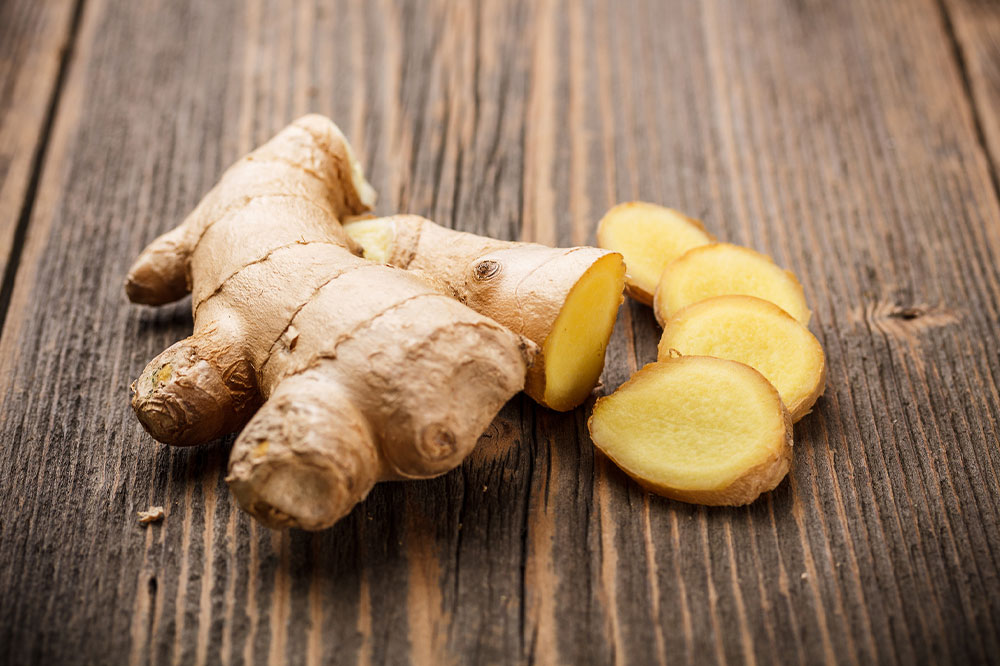
Manage COPD With These 5 Immunity-boosting Foods
Chronic obstructive pulmonary disease (COPD) is a lung condition characterized by obstruction in airflow from the lungs. It is typically caused by chronic bronchitis, emphysema, or exposure to irritants or particulate matter. The symptoms of this condition include wheezing, difficulty breathing, cough, and mucus production. It is a progressive condition and, as the name suggests, chronic. However, you can manage it through lifestyle and dietary changes, and a good quality of life is within reach.
COPD and the immunity
COPD is a complex condition affecting multiple organ systems. Though the illness can cause various complications like heart problems, high blood pressure, and lung cancer, the relationship between COPD and immunity is perhaps the most complex. Chronic inflammation is a complication of this condition and is a strong indicator of the immune system’s involvement in COPD. Chronic inflammation compromises immune functioning, allowing pathogens to make your lungs their new home. Since exposure to irritants is implicated, there is a natural response from both structural and immune cells in the lungs. Individuals with COPD are much more likely at risk of respiratory infections like colds, pneumonia, and flu, making breathing more difficult and damaging the lungs further.
Managing COPD
Though a diagnosis of COPD is not immediately life-threatening nor as scary as a cancer diagnosis, it will not be easy. However, it is possible to handle them better if you are well-informed.
First, safeguard your lungs by preventing flare-ups. It could mean taking prescription treatments to prevent infection, avoiding allergens, and avoiding unhealthy lifestyle habits. Though exercising becomes more difficult due to difficulty breathing, moderate physical activity in the right proportions can do wonders while coping with this chronic condition. Be sure to discuss with a health expert the kind of physical activity that will benefit your condition. Of course, like with any chronic illness, there is the problem of coping with negative emotions. Fear and anxiety are not far away; thus, identifying and handling them is necessary. Do not hesitate to talk to your loved ones or occasionally seek a professional mental health expert to regain confidence or mental peace. You can also seek out support groups for patients with COPD to discuss your experience with others and share tips on managing the chronic condition. It is also essential to consult with your caregivers about what you may need if the situation worsens. Finally, the food you eat daily also influences your breathing patterns; therefore, it is important to get the proper nutrients to help you manage COPD. With these management tips in mind, enhancing your quality of life is possible even with COPD.
Immunity-boosting foods for COPD
A healthcare professional or a nutritional expert will likely advise you about COPD-safe foods apart from giving you an exercise regimen and other support to maintain your well-being. You can help accelerate the process to better health by including immunity-boosting foods in your diet. As mentioned before, COPD and immunity are interrelated, so it is crucial to attack the problem from both sides. You can use the following five foods to boost immunity and fight COPD.
Ginger
Ginger is the best ingredient to boost immune functioning and reduce the inflammation associated with COPD. This spice is excellent for managing the cold and flu symptoms that become common due to increased infections and helps recover after an infection. Ginger is an ingredient that suits various healthy dishes, so one can easily incorporate it into the daily meal plan.
Blueberries
This little berry is loaded with antioxidants like anthocyanins. They protect lung tissue from oxidative damage and are also known to improve immunity. Add some to your smoothie, or enjoy them as an afternoon snack to protect and preserve your lung functioning.
Oysters
This mollusk is packed with nutrients essential to maintaining and improving lung health. Zinc, copper, and selenium, which are needed for the lungs and immunity, are available in micro amounts. Further, these nutrients also tackle comorbid conditions like high blood pressure and vitamin B12 deficiency.
Coffee
Apart from waking you up in the morning, coffee also has the power to protect your lungs. This caffeine-rich drink is full of antioxidants that are essential for lung and immune functioning. Many studies indicate that coffee can protect the lungs from respiratory disease. It acts as a vasodilator, reducing high blood pressure as well as symptoms of asthma on a short-term basis.
Barley
A nutritious, high-fiber grain that can protect your lungs is barley. Those with COPD have an increased risk of mortality due to lung-related complications, which this whole grain can guard against. The flavonoids and vitamin E in barley reduce cellular damage associated with COPD and actively promote lung health, making it an ideal ingredient to add to your plate.
Other healthy food items
Apart from these five foods to boost immunity, there are also items like bell peppers, sunflower seeds, olive oil, papaya, and citrus fruits that can help cope with COPD. One can easily manage COPD by being mindful of what foods one eats and how one’s body reacts. Along with genetics, nutritional habits are a trigger that sets off COPD. So be sure to eat carefully. Furthermore, before making significant changes to your daily meal plan, consult a nutritional expert to determine if a particular food item suits you.
Remember that healing is a collaborative process. One cannot effectively cope with COPD without the help of others. It could be the doctor who helps you identify what food is good for you, a nutritional expert who enables you to plan your meals or a loved one. Be sure to ask for and get help when you need it. Do not hesitate to ask questions to your healthcare professional and see that your treatment plan suits your needs.


